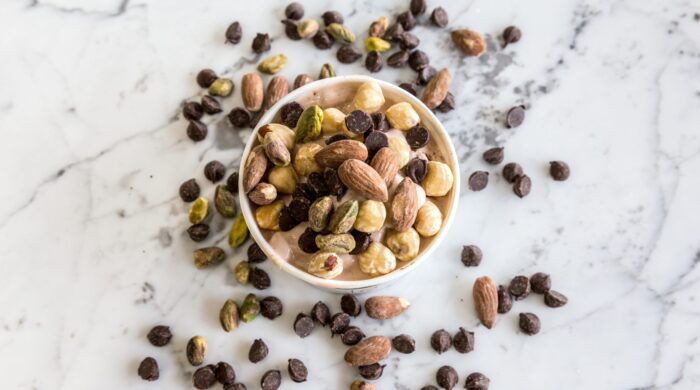Preserving your memory is important for quality of life both now and in the years to come. Studies show that nutrition plays a big part in how the brain functions, and adopting strategies to strengthen brainpower can help to boost your memory.
In this post, we’ll explain how memory works in the brain, which nutrients are good for it, which behaviors and foods can have negative impacts, how memory can be improved, and where to seek help if you want support boosting your cognitive function.
How does memory function in the brain?
In the brain, information from our senses is encoded, stored, and retrieved. Memory is the activation of a certain group of neurons linked to the retrieval of information.
Memory helps us make sense of the world and learn from our past experiences.
What nutrients assist with memory?
A number of nutrients have shown evidence of boosting memory. High on the list of “good” nutrients are: vitamin K, folate, beta carotene, lutein, omega-3 fatty acids, flavonoids, resveratrol, curcumin, lycopene vitamin B12, tyrosine, and vitamin C.
Some of the food and drinks that contain these nutrients are:
- Fatty fish such as herring, salmon and tuna
- Leafy greens like broccoli and kale
- Nuts such as walnuts, pistachios and almonds
- Fruits like blueberries, grapes and watermelon
- Herbs and spices such as turmeric and oregano
- Whole grains and legumes like cracked wheat, chickpeas and lentils
- Dark chocolate
Stimulant beverages such as caffeinated coffee and tea have also been shown to boost memory function.
What foods or behaviors negatively impact memory?
Just as there are good things we can eat and drink to boost cognitive function, there are also foods and drinks that cause inflammation and are especially bad for brain function and memory. A small sampling of these items to avoid include:
- White sugar
- Aspartame sweetener
- Processed meats that contain nitrosamines
- Microwave popcorn
- Processed cheeses
- White bread and white rice
- Margarine and other snack foods that contain trans fats
- Soda pop
In addition to the consumption of foods like these, the manifestation of stress, anxiety, sleep deprivation, thyroid issues, Vitamin B12 deficiencies, alcohol abuse, certain medications and poor dietary choices can all impact brain functions and contribute to a loss of memory.
Memory functions can also be impacted by injuries, tumors, treatments for cancer and head trauma.
Can memory can be improved?
We can improve our overall mental agility, the speed of our memory and short-term memory recall through a variety of cognitive exercises and behaviors. Some of the ways that have proven to be most effective are:
- Exercise. Physical exercise such as walking, swimming, cycling or playing sports such as tennis and racquetball has been shown to increase the volume of the hippocampus (where we store long-term memories) and prevent it from shrinking.
- Naps. Taking just a 20-minute nap can relax your mind so that your memory retention improves. Consistently getting 7 – 8 hours of sleep is also vital to maintain good cognitive health.
- Games. Playing games of strategy such as chess and sudoku or completing a crossword puzzle can aid in memorization skills and keep your brain strong.
- Opposite activities. Tricking your mind into working harder to perform daily tasks is a great way to stimulate your brain and boost your memory. For example: If you’re left-handed, use your right hand to eat meal or brush your hair. This will force the cells in your brain to adapt.
- Get organized. Make lists, record appointments in a notebook, file important papers—all of these actions will help you remember your activities better and reduce distractions that could impair memory retention.
Talk to a Provider
If you’d like to consult with a health provider about how to boost your memory, or need help planning memory-boosting meals, request an appointment with WWMG Family Medicine. Our primary care team takes a holistic approach to treatment and can discuss the best options for your individual needs.
